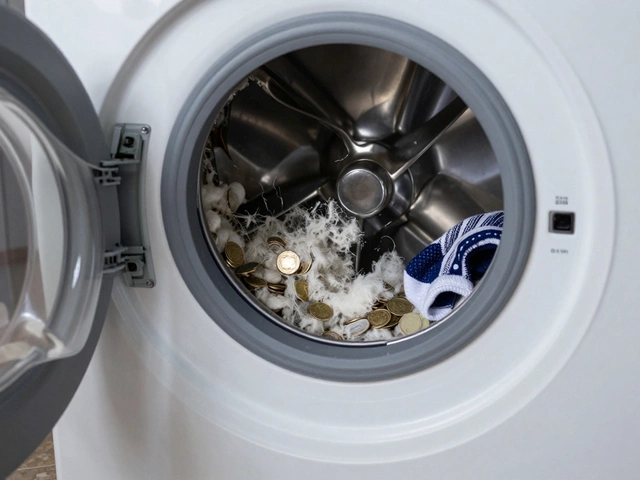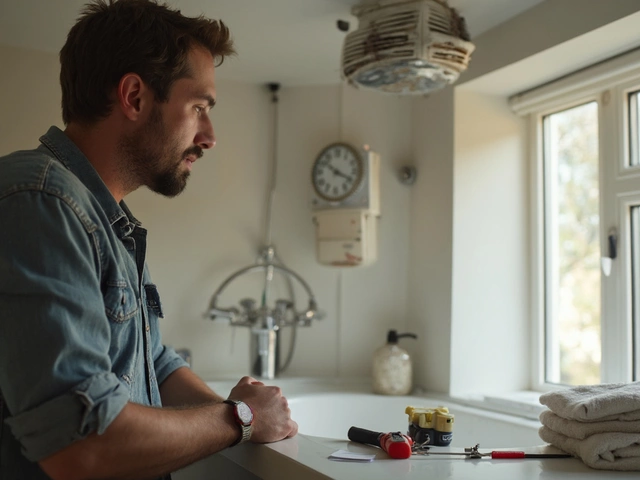Ever dropped your laptop and thought, “How bad can the repair bill really be?” Then you see the estimate and nearly drop the laptop again, this time on purpose. You’re not alone. Laptop repairs often cost way more than folks expect, and there are some real reasons for that.
First off, those parts aren’t cheap. It’s not just the screen or battery—it’s that most modern laptops use sleek, custom-fit components. Your MacBook Air’s keyboard? It’s not the same as your neighbor’s Dell. And that makes replacements pricier because they’re not always available in bulk or from third parties.
But it’s not only about the parts. The technical skills matter too. Ever tried opening up a slim ultrabook with barely any screws? I’ve watched pros spend hours coaxing apart a case without snapping little hinges or damaging the motherboard. It’s easy to underestimate the challenge until you’ve seen what goes on inside those thin metal shells.
- The High Price of Spare Parts
- Labor: Not Just Plug and Play
- Tiny Parts, Big Markup
- Common Fixes That Break the Bank
- Saving Money on Laptop Repairs
The High Price of Spare Parts
Here’s something that catches most people off guard: original parts for laptops are way more expensive than just about any other category of electronics. Take a laptop screen, for example. A replacement screen for a newer MacBook can set you back almost $400—sometimes more than a used laptop. Even basic Windows laptop touchscreens can cost over $150 just for the part.
Why so pricey? First, brands often use custom components. Most laptop makers design parts to fit only their models—sometimes even just one specific year. You can’t swap a Lenovo battery into an HP or use a Dell keyboard on an Asus. This means there’s not much competition, so prices don’t drop like they do for phone screens or desktop parts.
Another thing to watch for: laptops have gone thin, light, and hard to crack open. Most modern models use glued-down batteries, specialty screws, and one-of-a-kind displays that aren’t sold outside of official channels. Try getting a genuine battery or SSD for a slimline laptop—stores like Best Buy usually don’t even carry them. The upshot? Techs and shops pay high prices for parts and pass those extra costs onto you.
And let’s not forget about shipping and supply issues. Many laptop parts get made overseas and can be out of stock for months, especially after new models come out. When supplies are tight, prices jump. That’s exactly what happened with some gaming laptop GPUs last year—prices basically doubled from what folks paid just months earlier.
- Always check if generic parts are available, but be careful—they don’t always fit or work right.
- If your laptop is more than five years old, it might be hard or impossible to find parts at all, which pushes up prices for what’s left.
- Some brands, especially Apple, make it tough for even local repair shops to get official replacement parts.
This is a big reason laptop repair costs can sting. Next time you see a high quote, remember it’s not just labor—you’re often paying a premium right from the source.
Labor: Not Just Plug and Play
A lot of folks think fixing laptops is just about swapping out a broken part. But here’s the thing—labor is often the biggest chunk of your laptop repair bill. Laptops are built to be slim and compact, which makes opening them up way trickier than dealing with old desktop towers. There are tiny screws, hidden clips, and even glued components. One wrong move and you can snap a cable or break something important.
Most repair technicians have to invest hours into learning the ins and outs of tons of models. It’s not like every HP, ASUS, or Lenovo is the same. Manufacturers never really make it easy—some even solder the RAM or storage right onto the motherboard. That means technicians need special tools, expensive training, and sometimes even a microscope just to see what’s going on.
Check out these common labor times from real-world repair shops:
| Repair Task | Average Labor Time |
|---|---|
| Screen Replacement | 1–2 hours |
| Keyboard Repair | 2–3 hours |
| Motherboard Swap | 3–4 hours |
| Battery Replacement | 30 min–1 hour |
Some laptops are even worse—think Apple’s MacBook Pros or Microsoft Surface laptops, where the battery is glued in so well it can take hours (and lots of patience) just not to mess things up. Repair shops often include risk fees in their prices too. If something snaps, they might have to cover the replacement—so you’re helping cover their backs, just in case.
That’s why a quick repair rarely means a cheap one. Technicians know what they’re doing, and every minute counts when you’re working with tiny, delicate parts. A single fix can tie up a tech for half a day or more—so that labor charge isn’t just for the physical work, but also all that experience and care that keeps your laptop from turning into an expensive paperweight.

Tiny Parts, Big Markup
Here’s where stuff can really sting: the markup on those small, specialized components. You’d think a replacement screw or connector wouldn’t cost much, but the price goes way beyond the raw material. Laptop makers often design parts to fit only their models. You can’t just grab any screen or fan—it has to be a perfect match. When a repair shop orders, say, a charging port or a power button board, the cost from the manufacturer is surprisingly high. For some brands, tiny boards or ribbon cables can run $25 to $60, and that’s before the shop adds a retail markup.
There’s also the crazy situation with batteries. A factory-original battery can cost more than $100, while generic versions sometimes won’t even work, thanks to built-in chips that talk to your laptop. Some companies are even sealing batteries in, making them harder to replace, and you pay the price for labor and the part.
If you peek at a typical bill, it’s not just the big stuff like screens driving prices. Little things add up fast because each comes with shipping fees, handling, and a supplier markup. Shops also have to stock multiple tiny parts that might fit only rare or older laptops, so those slow sellers get a bigger markup to cover the risk of them sitting on the shelf forever.
All of this piles up, and suddenly you’re looking at a laptop repair bill that feels out of proportion to the tiny part in question. It’s not just greed or bad luck—it’s how the industry is built around specialized, hard-to-source components, and every extra layer adds cost.
Common Fixes That Break the Bank
Let’s get real about which laptop repair issues usually hit your wallet the hardest. It’s not always the obvious stuff, either. There are some repairs that almost always seem more expensive than they should be.
- Screen Replacements: Cracked or blank screens top the list. Apple's Retina display or a 4K touchscreen on a premium machine? You could be looking at $200 to $600—sometimes half the price of a new laptop. The displays are custom-fit and if a digitizer is involved, costs jump up fast.
- Motherboard Issues: Don’t even get us started. If your logic board or motherboard gets fried, repair can run anywhere from $300 to $700. And that’s if a replacement is even available. Sometimes, repair shops have to solder tiny chips, which takes serious skill.
- Battery Replacements: Especially for sealed laptops, battery swaps sound basic but aren’t cheap. Think $80 to $200 for a genuine part, plus labor. And that’s assuming the battery isn’t glued in—then the price goes up.
- Keyboard or Trackpad Replacement: Laptops like the MacBook don’t let you just pop out a key and swap the pad. The entire top case might need replacing, which can run $150 to $400.
If you’re curious, here’s what an average repair price comparison can look like:
| Repair Type | Average Cost (USD) |
|---|---|
| Screen Replacement | $250 |
| Motherboard Repair | $450 |
| Battery Replacement | $120 |
| Keyboard/Trackpad | $200 |
| Port Repair (USB, charging) | $100 |
One thing to keep in mind: most of the big spending comes down to the part price plus how tricky it is to get inside your laptop. Ultra-thin laptops are famous for being nearly impossible to open without special tools or the risk of breaking something else. That’s where a lot of the bill comes from—unavoidable if you want the job done right.

Saving Money on Laptop Repairs
A laptop coughs up a problem and suddenly you’re pricing repairs that look more expensive than just getting a new one. So, how do you keep your repair bills in check without corner-cutting on quality? There's good news: a few right moves can shave off a chunk of your costs.
First off, always get a second opinion. Technician A might say you need a new motherboard, while Technician B finds it’s just a loose connection. Don’t just go with the first answer—shop around for quotes. Some shops will even match lower prices if you ask.
It pays to know when and where to use official parts. Going with the brand (like Apple or Lenovo) guarantees compatibility, but third-party parts are often cheaper and still reliable—especially for things like batteries and screens. But watch out for items like logic boards; quality varies a lot. Also, check your warranty before paying anything out-of-pocket. Lots of people miss free fixes just because they forgot they’re covered.
Here are a few practical tips:
- Try basic troubleshooting first. A slow laptop sometimes just needs a dust cleaning or a hard drive check, not a pricey repair.
- Look for local repair shops—not just big-name stores. Independent shops often charge less for the same work.
- Use DIY video guides. Simple stuff like RAM or SSD upgrades can be done at home with a screwdriver and a steady hand.
- Join forums for your laptop brand; users often share repair hacks and where to buy solid parts for less.
| Issue | Average Cost |
|---|---|
| Screen Replacement | $120 - $350 |
| Battery Replacement | $60 - $200 |
| Motherboard Repair | $150 - $450 |
| Keyboard Replacement | $80 - $180 |
Lastly, keep your system updated and use a good case. Avoiding damage and software issues is the cheapest fix there is. Even my dog Max hasn't managed to break my laptop, because I keep it well protected (though he’s tried).
The bottom line? You don’t need to break the bank on laptop repair, but you do need to stay sharp on where your money goes. Use these tips, shop smart, and be ready to ask questions. Your wallet will thank you.





